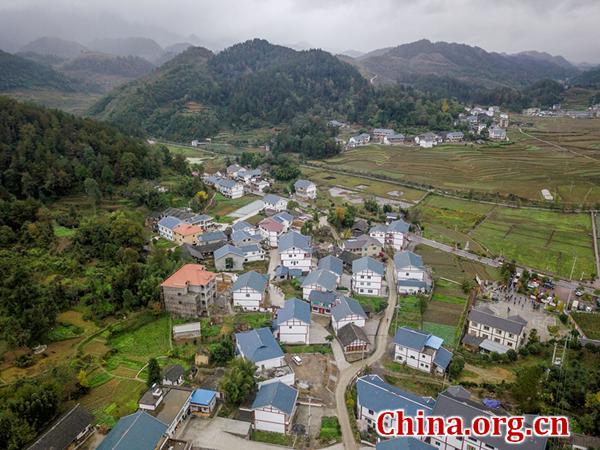Rural revitalization highlighted at two sessions
When information technology (IT) is better utilized in agriculture and rural areas, poverty reduction will be markedly transformed, lawmakers and political advisors said during China's ongoing two sessions.

Internet companies should focus more on agriculture, rural areas and on farmers to advance technological upgrading, increase employment and people's well-being in the countryside as well as to bridge the digital gap between urban and rural areas, said Yao Jinbo, a deputy to the National People's Congress (NPC), the country's top legislature.
Yao, the helmsman behind 58.com, the country's classified online marketplace, told China.org.cn that he is ready to submit a proposal to the session calling for more sophisticated internet infrastructure, improvement in social public services, as well as efforts to make e-governance more accessible in the rural areas.
Nowadays, more internet companies like Yao's are coordinating their businesses with China's ongoing drive to lift more people out of poverty by 2020 and contribute to the rural vitalization initiative put forward during the 19th National Congress of the Communist Party of China (CPC).
This year's No.1 document, released in early February, was devoted to agriculture, rural areas and farmers for the 15th consecutive year and has made rural revitalization this year's theme.
By vitalizing its vast rural regions, China expects to see a strong agricultural sector, a beautiful countryside and well-off farmers, according to the document.
Liu Qiangdong, a member of the Chinese People's Political Consultative Conference (CPPCC), the top political advisory body, proposed to shake off poverty in rural areas through e-commerce.
Liu, CEO of China's online retailer JD.com, said that e-commerce can better bridge supply and demand using technological and marketing advantages, thus channeling rural agricultural products directly to meet urban needs.
Liu suggests promoting large scale production of agricultural products to increase competitiveness, boost a sense of brand building among rural citizens, and encourage consumers to buy products under poverty relief programs.
Rural areas that used to be isolated due to poor transportation infrastructure are now forging ever closer ties with markets in many parts of the country by taking advantage of the booming e-commerce sector.
On the Ministry of Commerce (MOC) website, a digital map of China shows impoverished rural areas and provides links to online stores backed by local governments. From Tibetan dried beef to pickled cabbage from northeast China's Heilongjiang Province, a variety of agricultural products from 590 impoverished counties are now available.
Zhang Jindong, an NPC deputy and chairman of Sunning.com, suggests that the government should better advance infrastructure in impoverished counties, make cold-chain logistics accessible for agricultural products in rural areas, and strive to eradicate poverty through encouraging industrial development, employment, and small businesses in rural areas.
In this year's government work report by Premier Li Keqiang, the country vows to develop the Internet Plus Agriculture model, use multiple channels to increase rural incomes, and encourage the primary, secondary, and tertiary industries to develop in an integrated way in rural areas.